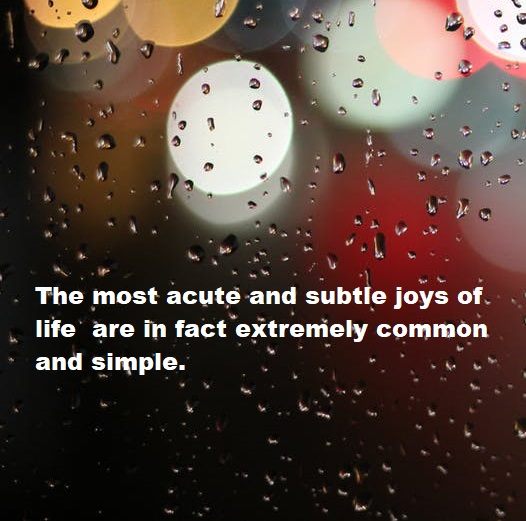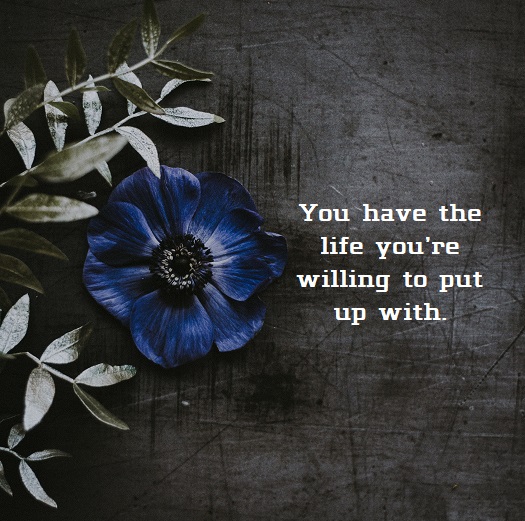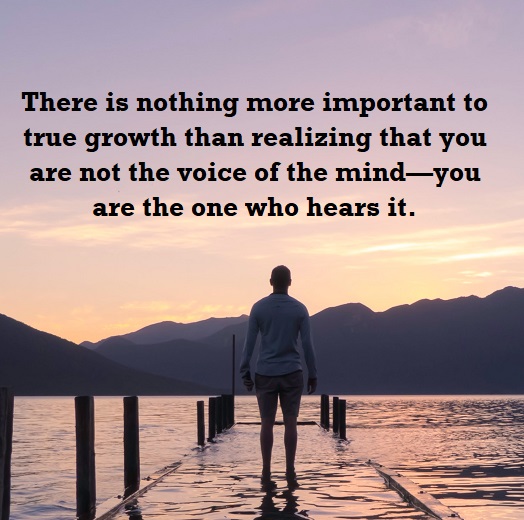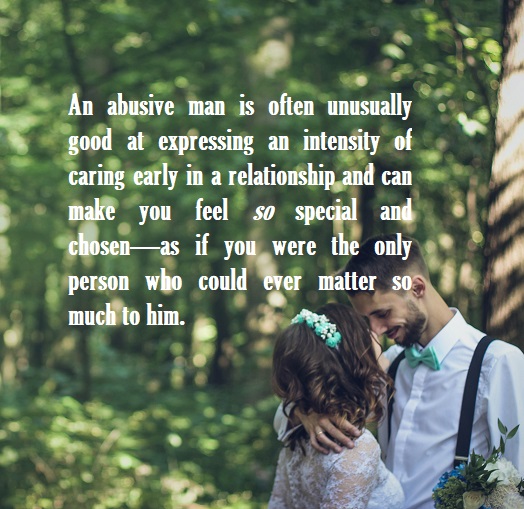51 Thought-Provoking Quotes from Wisdom of insecurity by Alan W.Watts
This book is mainly for atheists, agnostics
and Buddhists.
But if you are like me and believe that
there’s a God and life has meaning and purpose. You may find some of the views
expressed in the book completely opposite to your own. Still, It’s worth investing
time because it healthy to read views different than our own and he is so right
about pain. Everyone should read it. It’s a short book, won’t take much of your
time.
Here are the quotes:
''The
more we are able to feel pleasure, the more we are vulnerable to pain —and,
whether in background or foreground, the pain is always with us.''
''We
know so much detail about the problems of life that they resist easy
simplification, and seem more complex and shapeless than ever.''
''As
the years go by, there seem to be fewer and fewer rocks to which we can hold,
fewer things which we can regard as absolutely right and true, and fixed for
all time.''
''If happiness always depends on something expected in the future, we are chasing a will-o’-the-wisp that ever eludes our grasp, until the future, and ourselves, vanish into the abyss of death.''
― Alan W. Watts, The Wisdom of Insecurity: A Message for an Age of Anxiety
''The
heart has learned to feel that we live for the future. Science may, slowly and uncertainly,
give us a better future—for a few years. And then, for each of us, it will end.
It will all end. However long postponed, everything composed must decompose.''
''Our
age is one of frustration, anxiety, agitation, and addiction to ‘dope.’
Somehow we must grab what we can while we can, and drown out the realization
that the whole thing is futile and meaningless.''
''Religious
ideas are like words—of little use, and often misleading, unless you know the
concrete realities to which they refer. The word ‘water’ is a useful means of
communication amongst those who know water. The same is true of the word and
the idea called ‘God.’ ''
― Alan W. Watts, The Wisdom of Insecurity: A Message for an Age of Anxiety
''Paradox
as it may seem, we likewise find life meaningful only when we have seen that it
is without purpose, and know the ‘mystery of the universe’ only when we are
convinced that we know nothing about it at all.''
''If
we are to have intense pleasures, we must also be liable to intense pains. The
pleasure we love, and the pain we hate, but it seems impossible to have the former
without the latter.''
''If,
then, we are to be fully human and fully alive and aware, it seems that we must
be willing to suffer for our pleasures. Without such willingness there can be
no growth in the intensity of consciousness.''
''For
the animal to be happy it is enough that this moment be enjoyable. But man is
hardly satisfied with this at all. He is much more concerned to have enjoyable
memories and expectations — especially the latter. With these assured, he can
put up with an extremely miserable present. Without this assurance, he can be
extremely miserable in the midst of immediate physical pleasure.''
''The
power of memories and expectations is such that for most human beings the past
and the future are not as real,
but more real than the
present. The present cannot be lived happily unless the past has been ‘cleared
up’ and the future is bright with promise.''
''If
my happiness at this moment consists largely in reviewing happy memories and
expectations, I am but dimly aware of this present. I shall still be dimly
aware of the present when the good things that I have been expecting come to
pass. For I shall have formed a habit of looking behind and ahead, making it
difficult for me to attend to the here and now.''
― Alan W. Watts, The Wisdom of Insecurity: A Message for an Age of Anxiety
''So
many people of wealth understand much more about making and saving
money than about using and enjoying it. They fail to live because they are always
preparing to live. Instead of earning a living they are mostly earning an earning,
and thus when the time comes to relax they are unable to do so.''
''In
man, nature has conceived desires which it is impossible to satisfy. To drink
more fully of the fountain of pleasure, it has brought forth capacities which
make man the more susceptible to pain. It has given us the power to control the
future but a little—the price of which is the frustration of knowing that we
must at last go down in defeat.''
''We
fall in love with people and possessions only to be tortured by anxiety for
them.''
''To
resist change, to try to cling to life, is therefore like holding your breath:
if you persist you kill yourself.''
― Alan W. Watts, The Wisdom of Insecurity: A Message for an Age of Anxiety
''It
is absurd to take money too seriously, to confuse it with real wealth, because
it will do you no good to eat it or wear it for clothing. Money is more or less
static, for gold, silver, strong paper, or a bank balance can ‘stay put’ for a
long time. But real wealth, such as food, is perishable. Thus a community may
possess all the gold in the world, but if it does not farm its crops it will
starve.''
''It
is in the present and only in
the present that you live. There is no other reality than present reality.''
''Human
desire tends to be insatiable. We are so anxious for pleasure that we can never
get enough of it. We stimulate our sense organs until they become insensitive,
so that if pleasure is to continue they must have stronger and stronger
stimulants. In self-defense the body gets ill from the strain, but the brain wants
to go on and on.''
''As
in eating his ‘eyes are bigger than his stomach,’ so in love he judges
woman
by standards that are largely visual and cerebral rather than sexual and
visceral. He is attracted to his partner by the surface gloss, by the film on
the skin rather than the real body.''
''A
clock is a convenient device for arranging to meet a friend, or for helping
people to do things together, although things of this kind happened long before
they were invented. Clocks should not be smashed; they should simply be kept in
their place. And they are very much out of place when we try to adapt our
biological rhythms of eating, sleeping, evacuation, working, and relaxing to
their uniform circular rotation. A less brainy culture would learn to synchronize
its body rhythms rather than its clocks.''
''The
brain fails to see that, being itself material and subject to change, its
desires
will change, and a time will come when death will be good. On a bright morning,
after a good night’s rest, you do not want to go to sleep. But after a hard
day’s work the sensation of dropping into unconsciousness is extraordinarily
pleasant.''
''When
the heart is out of order, we are clearly conscious of its beating; it
becomes
a distraction, pounding within the breast. It seems most probable that our
preoccupation with thinking and planning, together with the sense of mental
fatigue, is a sign of some disorder of the brain. The brain should, and in some
cases does, calculate and reason with the unconscious ease of the other bodily
organs. After all, the brain is not a muscle, and is thus not designed for
effort and strain.''
''Doing
something about a problem which you do not understand is like trying to clear
away darkness by thrusting it aside with your hands. When light is brought, the
darkness vanishes at once.''
''To
exist at all, human beings must have a minimum livelihood in terms of food,
drink, and clothing—with the understanding, however, that it cannot last
indefinitely. But if the assurance of a minimum livelihood for sixty years
would even begin to satisfy the heart of man, human problems would amount to
very little. Indeed, the very reason why we do not have this assurance is that
we want so much more than the minimum necessities.''
''The
desire for security and the feeling of insecurity are the same thing. To hold
your breath is to lose your breath. A society based on the quest for security
is nothing but a breath-retention contest in which everyone is as taut as a
drum and as purple as a beet.''
''It
is clear that the craving for security is itself a pain and a contradiction,
and that the more we pursue it, the more painful it becomes. This is true in
whatever form security may be conceived. You want to be happy, to forget
yourself, and yet the more you try to forget yourself, the more you remember
the self you want to forget. You want to escape from pain, but the more you
struggle to escape, the more you inflame the agony.You
are afraid and want to be brave, but the effort to be brave is fear trying to
run away from itself. You want peace of mind, but the attempt to pacify it is
like trying to calm the waves with a flat-iron.''
''What
we have to discover is that there is no safety, that seeking it is painful, and
that when we imagine that we have found it, we don’t like it.''
''While
you can make a guess as to what experience is coming next, in actual fact you
do not know. Anything might happen.''
''The
way out of Hell lies at its very center.''
― Alan W. Watts, The Wisdom of Insecurity: A Message for an Age of Anxiety
''At
every moment we are cautious, hesitant, and on the defensive. And all to no
avail, for life thrusts us into the unknown willy-nilly, and resistance is as
futile and exasperating as trying to swim against a roaring torrent.''
''How
does the mind absorb suffering?
It discovers that resistance and escape…is a
false move. The pain is
inescapable, and resistance as a defense only makes it worse; the whole system
is jarred by the shock. Seeing the impossibility of this course, it must act
according to its nature—remain stable and absorb.''
''Running
away from fear is fear, fighting pain is pain, trying to be brave is being
scared. If the mind is in pain, the mind is pain.''
''Sometimes,
when resistance ceases, the pain simply goes away or dwindles to an easily
tolerable ache. At other times it remains, but the absence of any resistance
brings about a way of feeling pain so unfamiliar as to be hard to describe. The
pain is no longer problematic.
I feel it, but there is no urge to get rid of it, for I have discovered that
pain and the effort to be separate from it are the same thing.''
― Alan W. Watts, The Wisdom of Insecurity: A Message for an Age of Anxiety
''Wanting
to get out of pain is the pain.''
''Nothing
is more creative than death, since it is the whole secret of life. It
means
that the past must be abandoned, that the unknown cannot be avoided,that ‘I’
cannot continue, and that nothing can be ultimately fixed. When a man knows
this, he lives for the first time in his life. By holding his breath, he loses
it. By letting it go he finds it.''
''Nothing
is really more inhuman than human relations based on morals. When a man gives
bread in order to be charitable, lives with a woman in order to be faithful,
eats with a Negro in order to be unprejudiced, and refuses to kill in order to
be peaceful, he is as cold as a clam. He does not actually see the other person.
Only a little less chilly is the benevolence springing from pity, which acts to
remove suffering because it finds the sight of it disgusting.''
''There
is no formula for generating the authentic warmth of love. It cannot
be
copied. You cannot talk yourself into it or rouse it by straining at the
emotions or by dedicating yourself solemnly to the service of mankind. Everyone
has love, but it can only come out when he is convinced of the impossibility
and the frustration of trying to love himself. This conviction will not come
through condemnations, through hating oneself, through calling self-love all
the bad names in the universe. It comes only in the awareness that one has no
self to love.''
''We
do not really want continuity, but rather a present experience of total
happiness.''
― Alan W. Watts, The Wisdom of Insecurity: A Message for an Age of Anxiety













Comments
Post a Comment